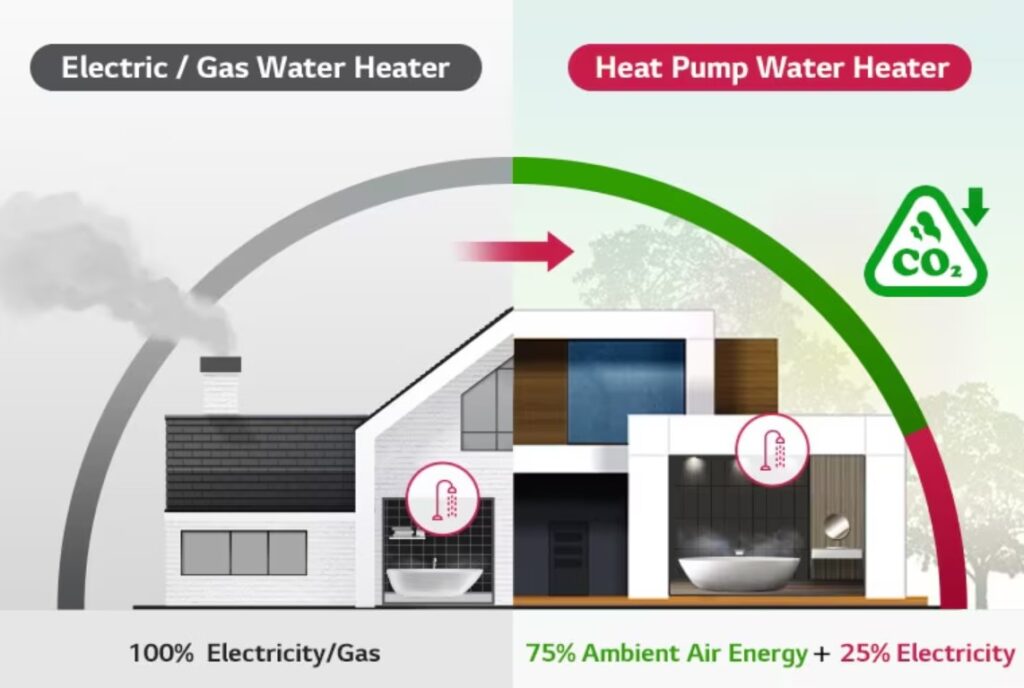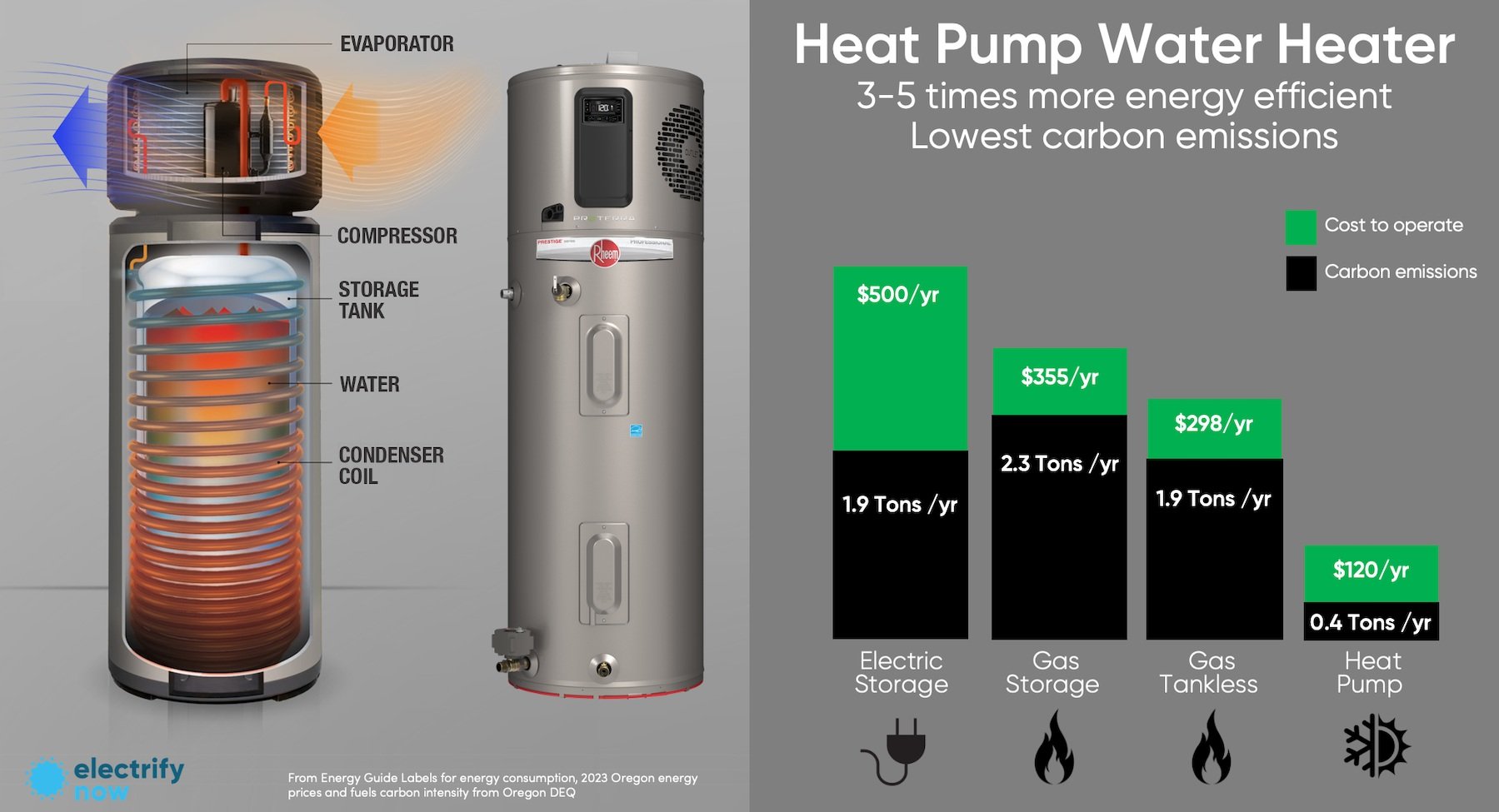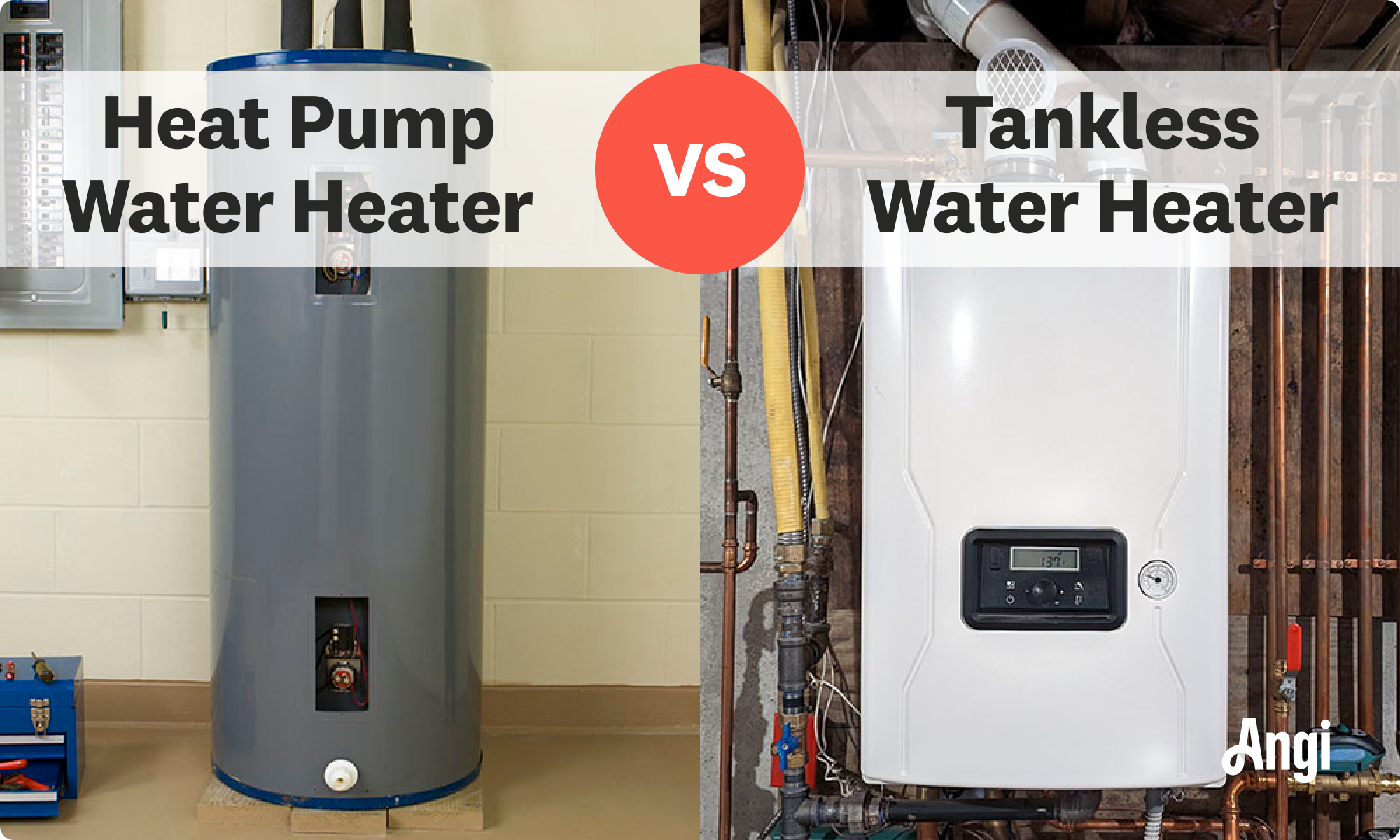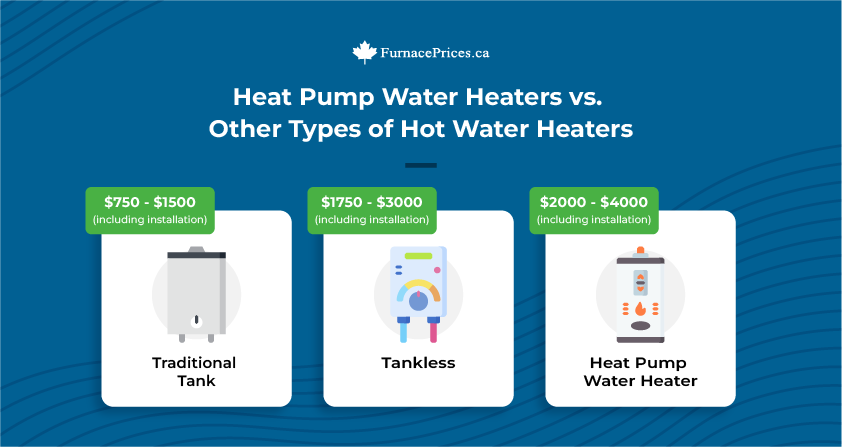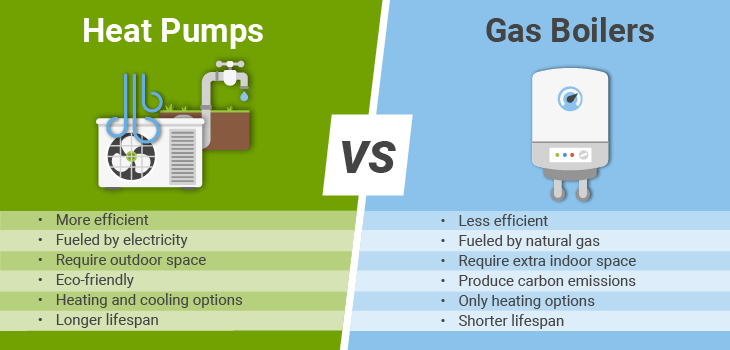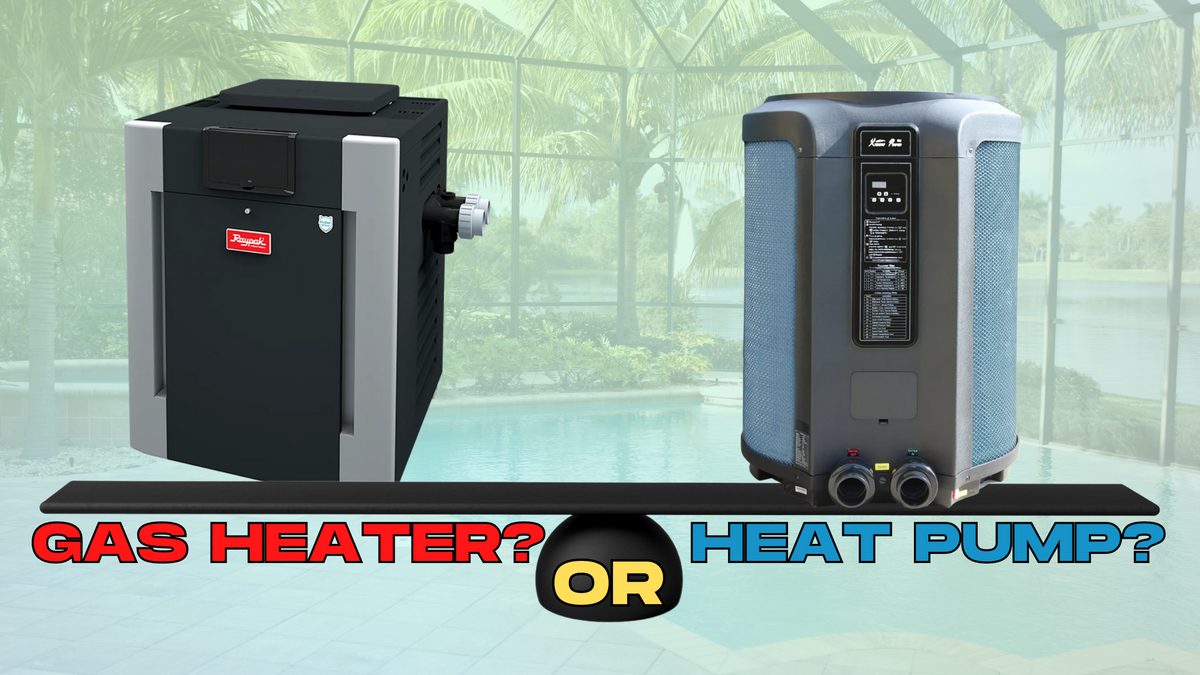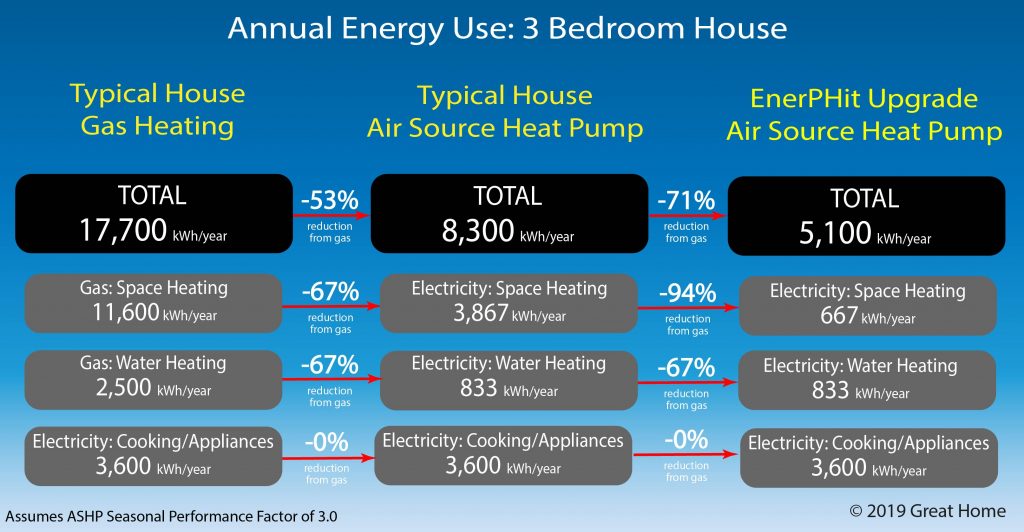Gas Water Heater Vs Heat Pump

Gas Water Heater vs. Heat Pump Water Heater: A Comprehensive HVAC Industry Comparison
The choice between a gas water heater and a heat pump water heater is a critical decision for homeowners and a frequent topic of discussion within the HVAC industry. As energy efficiency standards evolve and technological advancements reshape the market, understanding the nuances of each system is vital for HVAC professionals, students, and employers alike.
Understanding the Basics
Gas water heaters have been a mainstay in residential and commercial settings for decades. They operate by burning natural gas or propane to directly heat water stored in a tank. This technology is well-established and generally offers a lower upfront cost.
Heat pump water heaters (HPWHs), on the other hand, utilize electricity to transfer heat from the surrounding air to the water tank. This process is significantly more efficient than directly heating the water with electricity or gas. Think of it like a refrigerator working in reverse – instead of cooling the inside, it heats the water.
Efficiency and Cost: A Head-to-Head Comparison
The primary advantage of heat pump water heaters lies in their energy efficiency. HPWHs can achieve energy factors (EF) of 2.0 or higher, meaning they produce at least twice as much hot water per unit of energy consumed compared to a standard gas water heater with an EF around 0.6-0.7. Some advanced models can even exceed EF values of 3.0. This translates to significant long-term cost savings for homeowners, despite a higher initial purchase price.
According to the U.S. Department of Energy, a household using a heat pump water heater can save hundreds of dollars annually on their energy bills. The exact savings depend on factors such as local energy costs, usage patterns, and climate.
However, gas water heaters have their strengths. In areas with low natural gas prices, the operating cost of a gas water heater can be competitive. Furthermore, gas water heaters generally offer faster recovery rates, meaning they can heat water more quickly after a large draw, such as filling a bathtub.
Installation and Maintenance Considerations
Installing a gas water heater requires proper venting to safely exhaust combustion byproducts. This often involves a chimney or dedicated vent pipe. Gas line connections must be performed by a qualified professional, adhering to local codes and safety regulations.
Heat pump water heaters require an electrical connection, and some models may require a dedicated 240V circuit. They also need adequate space around the unit to draw in air. In colder climates, HPWHs may require supplemental heat to maintain optimal performance. Proper condensate drainage is also essential.
Both types of water heaters require periodic maintenance to ensure optimal performance and longevity. This includes flushing the tank to remove sediment, inspecting the burner (gas models), and cleaning the air filter (HPWHs).
Environmental Impact
Heat pump water heaters are generally considered more environmentally friendly than gas water heaters. By utilizing renewable energy sources like solar or wind to power the electricity grid, the carbon footprint of HPWHs can be significantly reduced. Even when powered by fossil fuels, the higher efficiency of HPWHs can lead to lower overall emissions.
Gas water heaters, on the other hand, produce greenhouse gas emissions during combustion. While advancements in burner technology have improved efficiency and reduced emissions, they still contribute to air pollution.
HVAC Career Paths and Certification
The shift towards more energy-efficient technologies like heat pump water heaters is creating new opportunities for HVAC professionals. Technicians with expertise in HPWH installation, maintenance, and repair are in high demand. Employers are actively seeking individuals with relevant skills and certifications.
Key certifications for HVAC professionals working with water heaters include:
- NATE (North American Technician Excellence): NATE offers certifications in various HVAC specialties, including water heating. NATE certification demonstrates a technician's knowledge and skills to employers and customers.
- EPA Section 608 Certification: While primarily focused on refrigerant handling, understanding refrigerant cycles is beneficial for servicing heat pump water heaters.
- Manufacturer-Specific Training: Many manufacturers offer training programs on their specific models of water heaters. These programs provide in-depth knowledge of installation, troubleshooting, and repair.
Real-world career examples:
- HVAC Technician specializing in energy efficiency: This role focuses on installing and maintaining energy-efficient HVAC systems, including heat pump water heaters. Salary ranges can vary based on experience and location, but experienced technicians can earn upwards of $70,000 per year.
- HVAC Sales Engineer: This role involves designing and selling HVAC systems to commercial and residential clients. A strong understanding of energy-efficient technologies is crucial. Salary ranges often include a base salary plus commission, with potential earnings exceeding $100,000 per year.
- HVAC Instructor: This role involves teaching HVAC concepts and skills to students in vocational schools or community colleges. Strong technical knowledge and communication skills are essential. Salary ranges vary depending on the institution and experience level.
The Bureau of Labor Statistics projects a positive job outlook for HVAC mechanics and installers, with employment expected to grow in the coming years. The increasing demand for energy-efficient systems and the growing complexity of HVAC equipment are driving this growth.
Employer Perspectives and Hiring Trends
HVAC employers are increasingly prioritizing candidates with experience in energy-efficient technologies. Certifications, training, and a proven track record of successful installations are highly valued.
Here's what employers are looking for:
- Technical skills: Proficiency in diagnosing, troubleshooting, and repairing both gas and heat pump water heaters.
- Knowledge of building codes and safety regulations: Ensuring installations comply with all applicable codes and regulations.
- Customer service skills: Communicating effectively with customers and providing excellent service.
- Problem-solving abilities: Identifying and resolving complex issues in a timely manner.
- Commitment to ongoing learning: Staying up-to-date with the latest technologies and best practices.
Employers are also investing in training programs to upskill their existing workforce and ensure they have the expertise to install and service heat pump water heaters. This represents a significant opportunity for technicians seeking to expand their skill set and advance their careers.
Future Trends in Water Heating
The future of water heating is likely to be driven by increasing energy efficiency standards and the adoption of renewable energy sources. Heat pump water heaters are poised to play an increasingly important role in this transition. Other emerging technologies, such as solar water heating and tankless water heaters, are also gaining traction.
As the HVAC industry continues to evolve, professionals who embrace new technologies and invest in their skills will be well-positioned for success. Understanding the advantages and disadvantages of different water heating systems, including gas and heat pump models, is essential for providing informed recommendations to customers and ensuring optimal performance and energy savings.
"The key to success in the HVAC industry is continuous learning and adaptation. Embrace new technologies, stay informed about industry trends, and invest in your skills to remain competitive." - *HVAC Industry Analyst*
By staying informed, seeking relevant certifications, and developing practical skills, HVAC professionals can thrive in this dynamic and growing field. Whether you're a student, an experienced technician, or an employer, understanding the nuances of gas vs. heat pump water heaters is crucial for navigating the evolving landscape of the HVAC industry.
